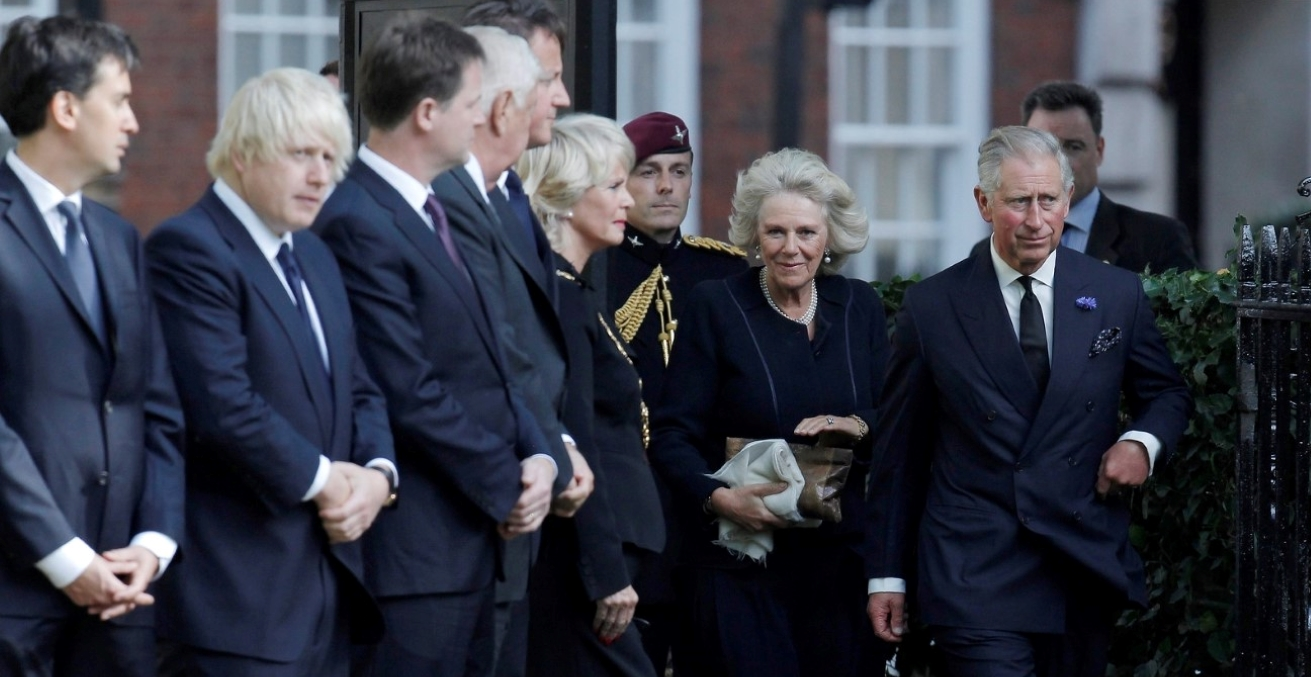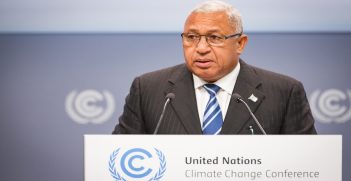British Tales of the Unexpected and the Future King’s Message to Morrison, Trump, and Other World Leaders

Under the leadership of Boris Johnson, the UK government is setting up to tackle a range of ambitious projects. With the United Nations Climate Change Conference in Glasgow on the horizon, climate change policies are high on the agenda.
The unpredictability of the re-elected Johnson government in Britain was predictable. Yet few would have imagined that the television pictures of the restructured cabinet would resemble a re-enactment of the Mad Hatter’s Tea Party. Gone was the formidable Sajid Javid, the only Chancellor of the Exchequer in history never to deliver a budget, which is scheduled for three weeks’ time. The Northern Ireland and Business secretaries were both sacked. Northern Ireland Secretary Julian Smith was widely acclaimed for restoring Stormont, the Ulster Assembly that had not sat for three years. Business Secretary Andrea Leadsom had enthusiastically backed Johnson through his rise to power.
Almost as bizarre was the discussion on new infrastructure projects brought to the table by Johnson. These included the construction of a 20 kilometre bridge between Scotland and Northern Ireland (inconveniently located above a large cache of unexploded World War II bombs), the establishment of an unstated number of free trade ports attached to tax-exempt industrial zones, and the opening of discussions with a Chinese state-owned corporation to actively participate in the construction of HS2, a new 360 kph train line between London and the UK’s second largest city, Birmingham, and on to Leeds and Manchester. Even before a single metre of track has been laid, the project is already forecast to double its budget to $200 billion, and its completion date has been put back to 2040. China’s National Rail Company has offered to build the project in half the time at a greatly reduced cost.
There was little discussion on any of these mammoth projects, and none of the new ministers were unkind (or unwise) enough to remind Johnson that two of his grandest schemes when he was mayor of London bit the dust – a new London airport on a windy sandbank in the River Thames estuary, colloquially known as Boris Island, and a “garden bridge” over the Thames in Central London.
The cabinet did finally agree to a long-held Johnson desire to introduce, from January 2021, a new immigration policy largely based on Australia’s points system. The British version is expected to give high priority to those with skills in demand, irrespective of where they come from, race, or religion. In theory, at least, this should reduce immigrant numbers. However, with unemployment now at 3.8 percent, the system will create acute shortages if, for example, it denies access to the large number of East Europeans now working in the low paid jobs in hospitals, care homes, hotels and the hospitality industry, public transport, and farms.
Ministers are also taking seriously the Cameron government’s commitment through the 2015 Paris Accord to cut carbon emissions to zero by 2050. No doubt they have an eye to the United Nations Climate Change Conference in Glasgow in November, hosted by the UK government. The sale of all new diesel, petrol, and hybrid vehicles is to be banned from 2035, and the government has proposed the date might be brought forward to 2032, just 12 years from now. The automobile trade is already in a state of stagnation, affected by Brexit, and sales of new conventional vehicles have slumped. The slow introduction of charging points for electric cars also threatens to slow the planned launch this year of dozens of all-electric cars.
The Johnson government is hoping that this bold policy will be a centrepiece for the Glasgow Summit and will be copied by countries such as Australia, New Zealand, Canada, and most of the 27 European Union nations. (The conference is only a few days after the US presidential election, so White House support is unlikely.)
Climate change activists tend to dismiss the UK government record on tackling climate change, even though Britain generates the largest share of its energy from renewables. Meanwhile, Johnson sees Glasgow as an opportunity to strengthen his international credentials, especially if COP26, the codename for the conference, can salvage something from the wreckage of COP25 in Madrid last year, at which Australia copped a great deal of flack for lining up with Trump in rejecting UN goals.
Johnson has another strong ally for Glasgow in the future King, who has come up with a well-argued, if prosaic, framework for making progress in Glasgow. The Prince of Wales, of course, is also the future King of Australia, Canada, and New Zealand, and the likely head of the Commonwealth of Nations, currently headed by Queen Elizabeth II, who is approaching her 95th year.
Unlike his mother, who studiously and diligently eschews politics, Charles is an outspoken activist in the spheres that interest him most. One of his passions, shared with highly visible TV personalities like Sir David Attenborough, is the preservation of the planet and its natural wonders like the Great Barrier Reef. “Global warming, climate change, and the devastating loss of biodiversity are the greatest threats humanity has ever faced – and one largely of our own creation”, he told world leaders gathered at the World Economic Forum in Davos last month.
More than three decades earlier, Charles was mocked by the tabloids for talking to the trees. At Davos, he observed that much of his life has been devoted to the restoration of harmony between humanity, nature, and the environment. “Frankly, it has been a bit of an uphill struggle,” he said wryly. “But, now, it is time to take it to the next level.”
That level, as he described it, was an international pact between political leaders, businesses, and communities to put sustainability at the heart of their respective policymaking, planning, and human behaviour.
His speech was calm and measured. While he did not mention Australia or any other country specifically, his powerful message was as much to Prime Minister Scott Morrison as anyone else. High on the prince’s list of sustainability priorities is the need to get net carbon emissions down to zero as fast as possible – an area where Australia’s efforts will be found wanting. Neither the Morrison government nor its predecessors has shown much inclination to move away from fossil fuels in public or private transport. There are few incentives for electric cars and no infrastructure to support them. There are also no disincentives in place to discourage the use of overpowered, high-emission SUVs for the school run or the supermarket shop. Only the Opposition has any ambition for a high-speed electric rail network linking Brisbane, Sydney, Canberra, and Melbourne.
Another priority on Charles’ sustainability list is the need to engineer sustainable new industries and to re-engineer some old ones. In Australia’s case, these should include a much speedier transition to wind and solar power generation, improved forestry and water management, higher standards in building and construction, and an end to wasteful subsidies. Morrison has decried General Motors’ decision to drop its Holden brand name, but the Coalition must take much of the blame for wasting some $2 billion of taxpayers’ money to prop up unsustainable motor manufacturing in Australia.
We have yet to find out whether Morrison’s approach to COP 26 will be as bold as Boris Johnson’s, but his next encounter with his future King will not be without substance or interest.
Colin Chapman is a former president of AIIA NSW and a former vice-president Asia Pacific of a global geopolitical analysis company. Earlier, as director of broadcasting at the Financial Times, he attended eight annual meetings of the World Economic Forum as a media leader and continues to follow its debates, which are available to the public at weforum.org.
This article is published under a Creative Commons License and may be republished with attribution.





